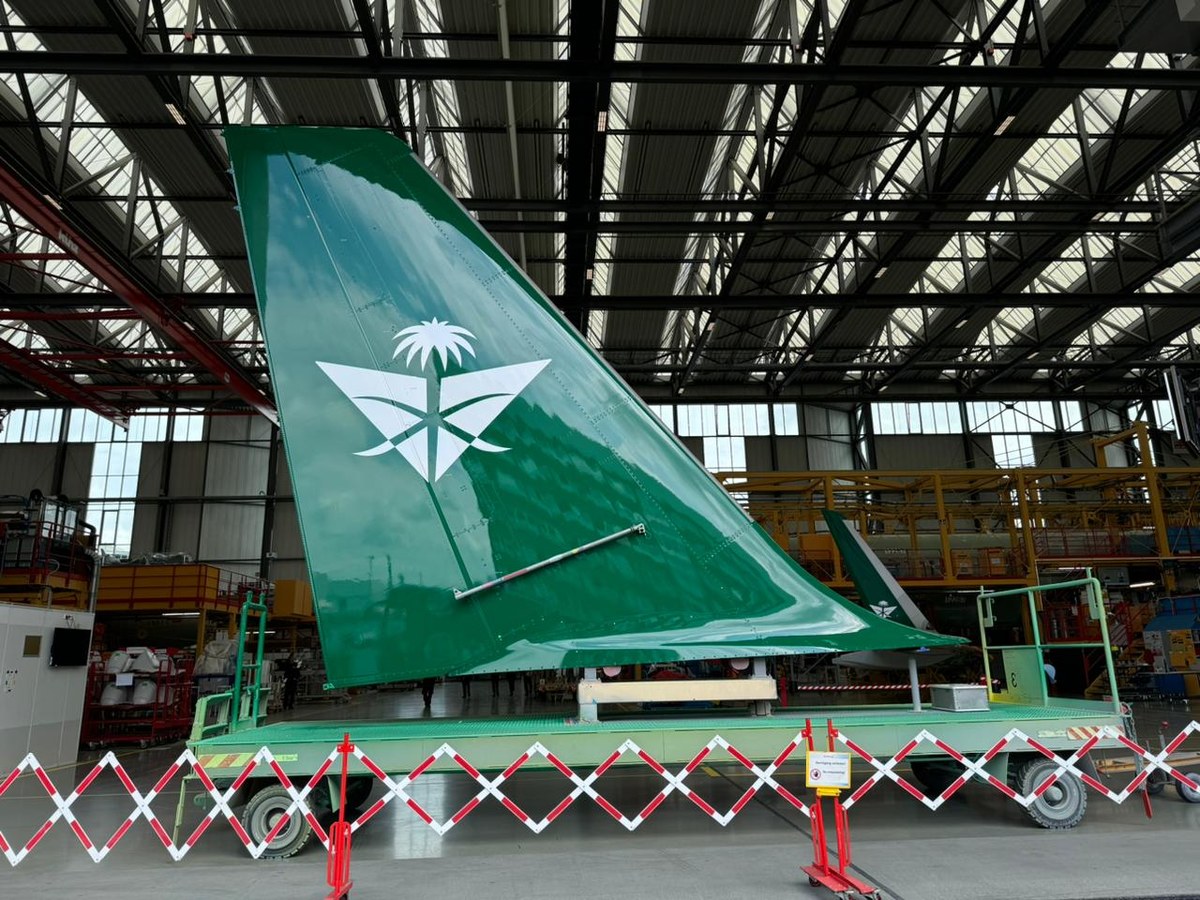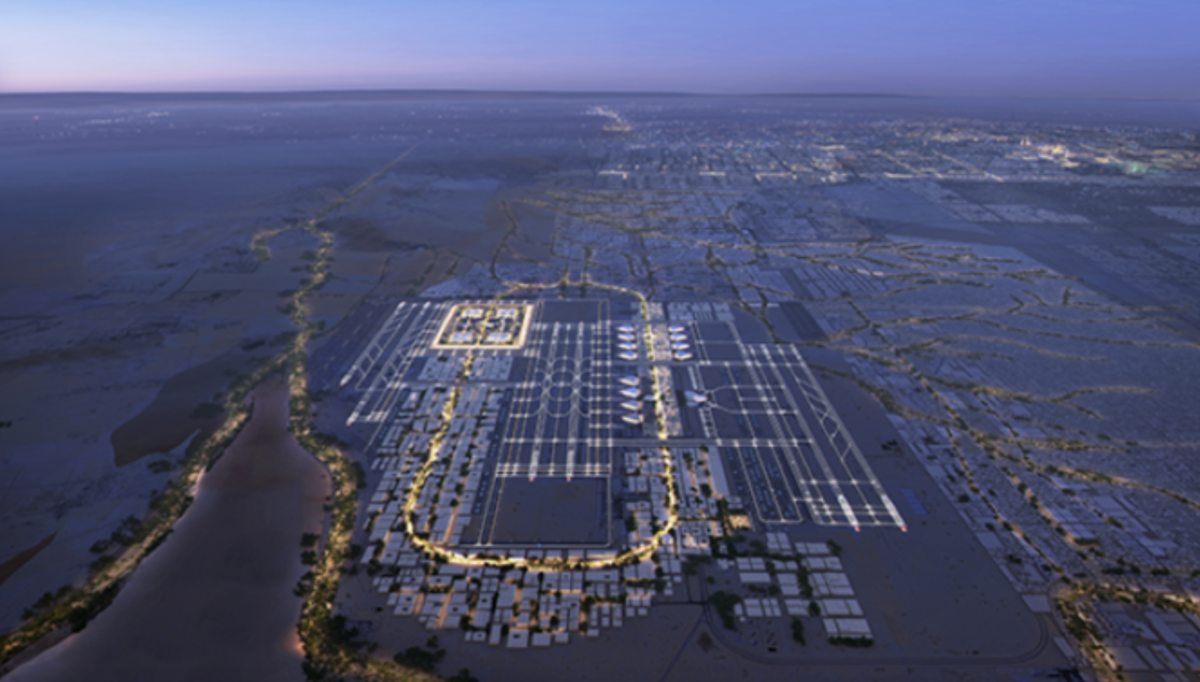HAMBURG: A delegation from Saudia airline has made a special visit to Airbus’s factory in Hamburg to see for itself the progress of the largest aircraft deal in the Kingdom’s aviation history.
This landmark agreement, signed in May, includes the acquisition of 105 state-of-the-art A320neo and A321neo aircraft, which are to be distributed between Saudia and its low-cost carrier, flyadeal.
The deal is the latest in the longstanding relationship between Saudia and Airbus, which began in the early 1980s when Saudia became the launch customer for the Airbus A300-600, delivered in March 1984, coinciding with the start of operations to Colombo, Sri Lanka.
The most recent aircraft deal, valued at $19 billion, aligns closely with Saudia Group’s Vision 2030 objectives, aiming to transport 330 million travelers, accommodate 150 million visits, and serve 30 million pilgrims.
Speaking to Arab News at the event, Michael Kindsgrab, German Ambassador to Saudi Arabia, said: “This is a great day for German-Saudi economic relations. This is the biggest aircraft deal we’ve ever signed between Airbus and Saudi Arabia and Saudia airlines, so this really leads into the future for more sustainable, ever more safe, more comfortable aviation.”
He added: “This is a very big sign of the trust Saudia places into Airbus into the possibility of Airbus to make Saudia a happy customer. It’s a very good day for Saudi-German relations. I’m happy to be part of it.”
The deal significantly strengthens Saudi Arabia’s position as a hub for entertainment, sports, and major events, bolstering its global influence. It also boosts local content, fosters business entrepreneurship, and fuels sustainable economic growth for the Kingdom.

The aircraft each take six months to complete. AN
Strengthening capabilities and workforce
Emphasizing a holistic investment strategy, the deal prioritizes local workforce development and technology transfer, fostering innovation across the aviation sector, and contributing to local content worth an estimated SR2.5 billion ($670 million).
Additionally, the agreement will transform the Saudi small and medium enterprise sector into an essential contributor within Airbus’ global supply chain.
Addressing the Saudi delegation in Hamburg, President of Airbus International Wouter van Wersch described the deal as “a fantastic opportunity for us to strengthen our cooperation”.
He continued: “We are ready right here and right now to grow with the Kingdom through its ambitions. We can turn many opportunities into realities.”
Van Wersch said that each aircraft takes six months to finish, and added: “We have many Saudis working in our teams, and our cooperation is built on a strong partnership through various activities.”
Another significant outcome of this deal is that it will promote strong economic and diplomatic collaboration between Saudi Arabia and European countries, reinforcing commitments to regional stability and global cooperation.
This will create investment opportunities and foster the creation of high-caliber, direct and indirect jobs in the Airbus manufacturing countries across Europe, particularly in Germany.
Reflecting on the 40-year relationship between his company and Airbus, director general of Saudia Ibrahim Al-Omar said the latest agreement was a “historical deal.”
Al-Omar also stressed that the partnership will reflect a robust effect that goes beyond just the immediate participants, benefiting regions in Germany and Europe by creating high-quality jobs.
Moreover, the partnership exemplifies how international collaborations can spur innovation and economic growth globally.
Speaking to Arab News, Al-Omar said: “Our visit today has provided us with a special opportunity to witness the efforts and processes that define Airbus leadership in the industry.
“The facility and the skilled workforce at Airbus demonstrate a commitment to excellence that aligns perfectly with Saudia Group’s vision to enhance our guest experience and expand our capability. We are excited about the future and the promising production timeline.”
He added that together the firms are “not only shaping the future of aviation but also building a legacy of excellence and innovation.”
Also speaking to Arab News, Khaled Tash, the group chief marketing officer for Saudia, noted that as Airbus is a key economic driver in Europe, other countries on the continent will see benefits from the order.
“A deal like these 105 aircraft – imagine what kind of job opportunities it creates here in Germany, in France, in Spain, in the UK where the different parts are being manufactured, but also back in Saudi Arabia,” he said.
Tash further explained that each new aircraft requires about six to eight pilots and co-pilots, along with over 20 cabin crew members.
Additionally, a significant number of technicians and engineers are needed to maintain and perform all necessary maintenance work on the aircraft.
“The amount of job opportunities that such deals create, make it a social economic deal, much more than just an airline deal with a manufacturer,” Tash said.
A new experience
The $19 billion deal, announced at the Future Aviation Forum in Riyadh in May, will see Saudia acquire 54 A321neo planes, while flyadeal will receive 12 A320neo and 39 A321neo aircrafts .
The agreement was announced in the presence of Minister of Transport and Logistic Services Saleh bin Nasser AI-Jasser, Director General of Saudia Group Ibrahim Al-Omar, and Benoît de Saint-Exupéry, executive vice president of sales of Airbus.
Speaking at the forum, Al-Omar stated that over the next five years, 88 new aircraft will be added to the fleet, adding: “If we refer to the renovation of the guest cabin, we promise everyone a new experience in the business and hospitality classes based on privacy and the innovation of new products as this project will include new aircraft in addition to the current fleet.”
He went on to say that the first plane will be equipped with new seats by the end of 2025.
Starting in the fourth quarter of 2024, Saudi Airlines will begin offering fast and high-quality internet services on its flights.
Additionally, the airline will equip its aircraft with high-resolution screens that are Bluetooth-enabled and compatible with most smart devices. This upgrade will be implemented on both new and existing aircraft.
Saudi Arabia’s Aviation Strategy aims to triple passenger numbers, connect to over 250 destinations, and manage 4.5 million tonnes of cargo by 2030.




























